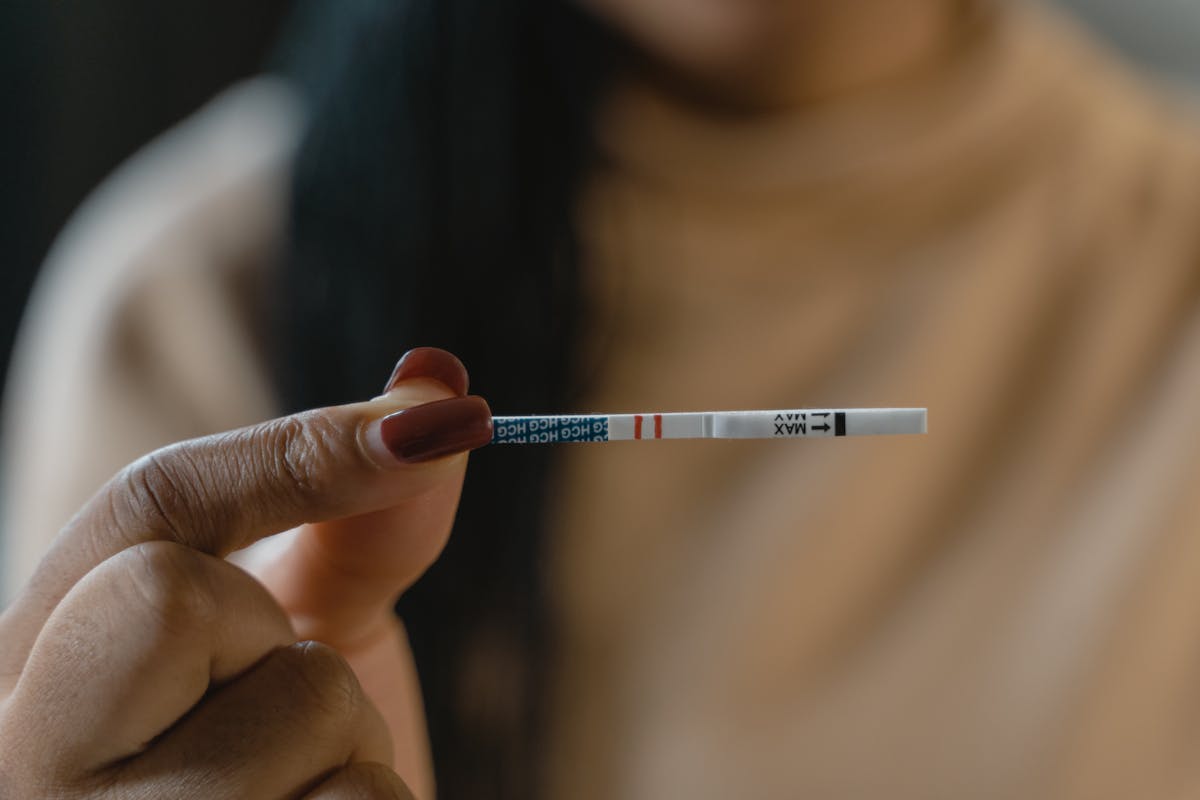
Hormonal Imbalance: The Invisible Cause of Numerous Diseases
Hormones are biological messengers that travel throughout the body, regulating cells and tissues. When they are not in balance or fail to transmit their message, it can lead to the development of common chronic diseases such as diabetes, thyroid disorders, cancer, osteoporosis, obesity, and other health challenges such as infertility.
World Hormone Day – Raising Awareness of the Importance of Hormones in the Body
After three successful years of raising awareness about the importance of good hormonal status through the European Hormone Day, the first World Hormone Day will be marked on April 24, 2025. It is organized as a series of activities aimed at informing the general and professional public about the importance of hormonal status in achieving and maintaining good health, focusing on obesity, neoplasms, rare endocrine diseases, and so-called endocrine disruptors, i.e., external factors that disturb endocrine health, reports Stetoskop.info.
To What Extent Hormonal Imbalance Can Affect Fertility
The signs or symptoms of hormonal imbalance will depend on which hormones or glands are not functioning properly and can vary from person to person.
Symptoms of hormonal imbalance may include:
heavy or irregular periods, including missed periods (amenorrhea), stopped periods, or frequent periods,
decreased libido,
infertility.
Early Diagnosis and Prevention
The values of reproductive hormones, as well as thyroid hormones, are a significant element in assessing the causes of infertility, important for treating infertility and monitoring endocrine system dysfunctions. We also monitor insulin concentration for possible insulin resistance and body mass index to assess nutritional status.
It is important to emphasize that hormonal rebalancing begins with physical activity, which is essential for hormonal balance. Exercising 1.5–2.5 hours per week helps the body produce hormones.
The recommended diet is the Mediterranean diet rich in fresh fruits, vegetables, and whole grains, while fast food should be minimized. To maintain vitamin D concentration, it is advised to consume fatty fish like salmon and sardines. Vitamin D supplements like cod liver oil can be considered, especially during autumn and winter when sun exposure is reduced. Yogurt, almonds, legumes, and dark leafy greens help protect bones and teeth, being rich in calcium. Seafood, seaweed, eggs, and dairy products can help maintain iodine levels.
It is optimal to sleep for 7 hours uninterrupted at the same time every night to maintain vitality and energy. To neutralize endocrine disruptors, it is advised to avoid plastic packaging, maintain hygiene to eliminate dust particles, and carefully select personal care and cosmetic products to avoid those containing chemicals like phthalates, parabens, and triclosan.
“The earlier the treatment begins, the sooner subjective improvement in quality of life occurs and the possibility of complications from endocrine diseases is eliminated,” states Assoc. Prof. Dr. Pandrc.
Insulin Resistance and Its Connection to Infertility
Insulin resistance syndrome is a prediabetic condition, potentially reversible, characterized by the resistance of peripheral tissues, primarily muscle, to the action of insulin, which is present in excess.
This insulin leads to polycystic changes in the ovaries, reducing the ovarian reserve indicated by the AMH hormone and directly worsening ovulation quality.
Laboratory tests are needed to determine morning blood sugar and insulin levels, from which the HOMA index is calculated, and if it exceeds 2.7, the person has insulin resistance.
A medication from the biguanide class, safe during pregnancy, is prescribed. It effectively regulates insulin resistance and acts as an ovulation inducer, benefiting the patient on multiple levels.
How Important Are Thyroid Hormones for Reproductive Health?
One of the effects of thyroid hormone deficiency concerns the reproductive organs. Reduced thyroid function, even in a latent form, results in decreased libido and irregular menstrual cycles.
It is now known that even autoimmune thyroid disease (Hashimoto's thyroiditis) affects fetal development, as thyroid antibodies have been found in the embryo’s follicular fluid. These are maternal antibodies, indicating a past thyroid infection. They are always elevated as a marker of a past infection and can pass through the placenta into the baby's circulation. However, if the mother has acute thyroid inflammation during pregnancy, the antibodies remain in her body and do not pass the placenta. Thus, it is necessary to improve thyroid function before any attempt at pregnancy, especially before IVF procedures.
Is Pregnancy Possible with Hypothyroidism and How Is It Managed?
If a woman has hypothyroidism, pregnancy is possible as a biochemical pregnancy (elevated beta-HCG). This means fertilization can occur, but implantation of the embryo into the uterine wall is problematic. Thyroid hormone substitution is introduced to achieve a TSH value between 2 and 3. Since levothyroxine dosage is based on body weight, more frequent TSH monitoring is needed as pregnancy progresses and weight increases.
It is also recommended to introduce selenium supplementation as an essential micronutrient crucial in the synthesis, activation, and metabolism of thyroid hormones. Selenium supplementation during pregnancy can be beneficial, especially in women with thyroid antibodies. Studies show reduced antibody levels and decreased occurrence of postpartum thyroid dysfunction. Some European guidelines recommend selenium supplementation (200 µg daily) during pregnancy and 12 months postpartum for women positive for TPO antibodies.
- What is narcolepsy and how to recognize this disorder
- Neurobics is gymnastics for the brain – here are 10 exercises you can try right now
How Obesity Affects Hormonal Status and Fertility in Men and Women
Fat tissue acts as an independent endocrine organ, producing excessive estrogen, thus significantly reducing the chances of successful fertilization, whether spontaneous or assisted. It also secretes numerous factors that disrupt ovarian function and all reproductive functions of the uterus, from ovulation to the transport and implantation of the fertilized egg.
In men, the enzyme aromatase from fat cells can convert male testosterone into estrogen, disrupting sperm production, which is essential for male fertility.
In treating infertility and enhancing fertility in obese individuals, the Mediterranean diet is recommended—fresh fruits and vegetables, olive oil, fish, and foods rich in antioxidants and omega-3 fatty acids. For women, iron and folic acid are particularly important.
A proper diet with a weight reduction of about 7% over six months should be maintained for life. This means 500 fewer calories per day, losing half a kilogram per week, and about 2 kilograms per month. Proper nutrition includes:
- about 130g of complex carbohydrates per day,
- prohibition of trans fats (fried, breaded foods),
- avoiding simple carbohydrates (sweets, white bread),
- restricting saturated fats to less than 7% of daily caloric intake (e.g., lard).
Unsaturated omega-3 and omega-6 fatty acids, found in plant foods, oily fish (sardines, mackerel, tuna, anchovies), and cold-water fish (herring, salmon), and nuts, are recommended, with meals prepared using cold-pressed olive oil. If diet and lifestyle changes fail to achieve satisfactory weight loss, anti-obesity medications are considered.
Key Hormones Monitored in Infertility Diagnosis
In evaluating infertility causes, a woman's hormonal status is assessed, including:
estradiol (monitors follicle growth),
FSH (stimulates follicle growth and indirectly uterine wall thickening),
LH (indicates ovulation),
progesterone (prepares the uterine lining for implantation),
prolactin (can prevent conception, often monitored alongside TSH),
testosterone (elevated levels in women may indicate polycystic ovary syndrome),
TSH (elevated TSH indicates reduced thyroid function),
FT4 (low TSH values with high T3 and T4 levels indicate hyperthyroidism, and vice versa).
Additionally, insulin resistance index and body mass index are determined. If significant deviations are found, medication therapy is prescribed.
Advice to Couples Trying to Conceive Who Suspect Hormonal Issues
“You should consult your doctor if you experience any of the following symptoms: unexplained weight gain or loss, newly developed sensitivity to cold, changes in appetite, increased hair and nail brittleness, fatigue, dry and flaky skin, signs of depression, increased thirst, signs of premature or delayed puberty (outside the 8–13 years range for girls and 9–14 for boys), and specifically for adults, loss of libido, irregular menstrual cycles, or infertility,” emphasizes Assoc. Prof. Dr. Pandrc.
How to Raise Awareness About the Importance of Hormonal Balance
Endocrine disorders include:
obesity,
diabetes,
thyroid diseases,
tumors,
growth disorders,
arterial hypertension,
osteoporosis,
infertility and sexual dysfunction,
and numerous rare diseases.
It is not surprising that, at some point in life, more than three-quarters of the population will need an endocrinologist.
Besides individual factors that affect a person's endocrine health and are not always modifiable, there are general so-called endocrine disruptors we are exposed to through air, food, water, skin, and unfortunately, they can also be transmitted from mother to fetus.





